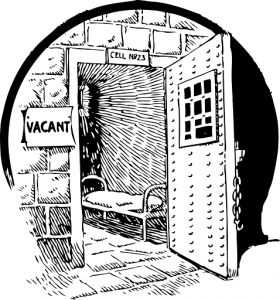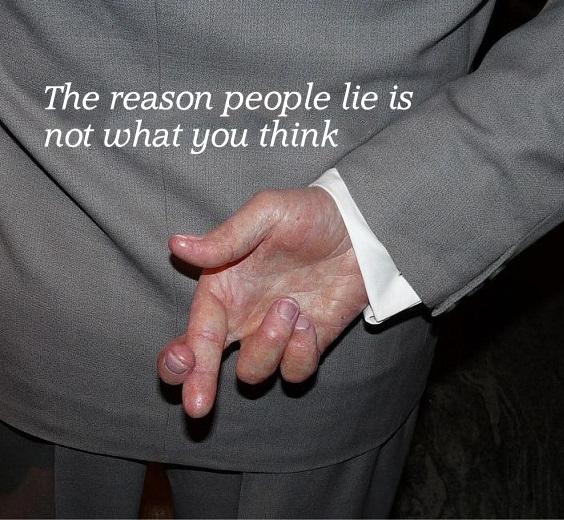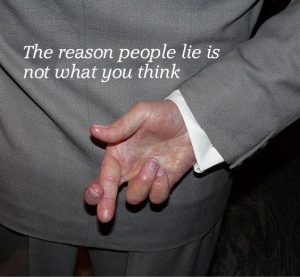Lying is often seen as an attempt to deceive you when the causes can be a lot more complicated and often not what you think. The current podcast episode explores the hidden reasons people lie.
Lying is an age old behavior
Now that all the uproar over Ryan Lochte has died down, the thing that stuck with me was that so many people kept asking “why would he lie?” Lying has been around since the beginning of time in fact, the Old Testament tells us the first lie occurred after Cain killed Abel so we’re talking as far back as biblical times. So let’s accept that lying is part of being human, and evolution may actually play a role in it. Animals and insects that were able to fool a potential predator could avoid being eaten, so nature prefers those who were able to develop behaviors, in this case lying, that helped them hide the truth about themselves. In the scheme of things then, those who were are able to lie, mislead, or deceive had the greatest chance of passing their genes on because bad liars were… eaten. Lying or the ability to deceive thus becomes a survival skill.
Lying and your tribe
A survival skill yes, but do you need to go around all the time deceiving even when a lion was not present? The answer is no. It was acceptable to deceive a predator or someone not from your tribe, but the members of your tribe need to be able to trust that you are what you say you are so lying has a social component. Lying or deception requires at least two people and it’s acceptable to lie to survive but not in everyday life among your tribe. This social part of deception carries high importance within the tribe and two things work to prevent lying. One is: members of your tribe through experience develop skills in lying detection (humans can watch your body language for telltale signs of lying or have knowledge that disputes the claim you’ve made); and two, there are heavy penalties within your group involving a loss of standing if you’re found to be lying. You may lie to outside tribal groups but not among your own tribe
There are situations where it’s OK to lie
Along with the social aspect of lying there is a situational component meaning it is OK to tell a lie that does not harm others. You know, those lies you tell your friends when they ask a question that might hurt their feelings if you really told them the truth. This point also brings in the concept of intent. Bad intent lying carries social penalty and good intent lying without harm, not so much.
Not all liars are sociopaths
 While I’m at it let me also explain that not all liars are sociopaths. Some people are simply good at creating false narratives to get out of situations. Anyone who has watched the classic movie “Ferris Bueller’s Day Off” knows what I mean as we watch him tell lie upon lie and root for his success. These types of liars don’t use their skill to hurt people just to move people around a little. They are not bad people and score as most of us would on personality profiles. Look for them in professions like sales, negotiating, politics, acting, or even as diplomats.
While I’m at it let me also explain that not all liars are sociopaths. Some people are simply good at creating false narratives to get out of situations. Anyone who has watched the classic movie “Ferris Bueller’s Day Off” knows what I mean as we watch him tell lie upon lie and root for his success. These types of liars don’t use their skill to hurt people just to move people around a little. They are not bad people and score as most of us would on personality profiles. Look for them in professions like sales, negotiating, politics, acting, or even as diplomats.
Lying in a social context
Now here is where the ability to lie relates to Mr. Lochte: Lying is often a tool we use in an attempt to order our reality. We use it to influence others and more importantly to alter what we think of ourselves. Studies have shown that the more bonded we are within a group the less likely we are to lie or attempt to use deception. The more social capital required, meaning the larger our social circle becomes the less bonded we feel and the greater the potential for lying. Fast forward now to the age of social media where we interact with millions of people with whom we have social capital but really are not bonded. Our reliance on clues like body language or face to face interactions may be dependent on what is simply written, or even worse a lie that is stated and in the rush to get one up on another reporting source, is broadcast as reality; we humans have less and less ability to distinguish a lie from truth and liars become bolder.
Research on lying
Based on a series of experiments conducted by Derek Rucker, a professor of marketing at the Kellogg School of Management, the ability to deceive is often used in the service of maintaining emotional well being, and people with high status or social capital are more likely to lie when it benefits them emotionally. Strangely people of low status were more willing to lie if someone else benefited. This connection is the classic case of bonding versus social capital in that lower status people depend more on their immediate social group for support and higher status people rely more on their social “power” to make their way in the world.
Lying, Ryan Lochte, and Social Media
Bringing all this back to “Why would Mr. Lochte lie?” Based on reports of what happened during that night out on the town, he was not feeling very good about how he performed during the encounter. To make himself feel better he told his mother a story that made him the hero. Rather than the mental image of being scared by a security guard with a gun, he altered his reality by telling him mother a story that allowed him to stand up to a lethal threat. I don’t think there was a design to deceive the general public (at least initially) but simply a desire to create a story that made him feel better about himself.
What Mr. Lochte had not counted on was his mother relaying his personal musings to a medium with the ability to broadcast them to a much larger audience. Then cue the technology that is designed to help defend against liars (video tape) and a Brazilian Government that also had the need to defend social capital.
All of this boils down to: Most of us have a built-in ability to lie and usually the goal is not to harm or deceive others (although that can be an element based on social standing or certain situations) but most of the time we lie to feel better about ourselves. So, the next time you find yourself ready to tell a whooper; stop for a moment and ask yourself what am I hoping to enhance about myself… and is it worth the potential consequences in this digital age?


